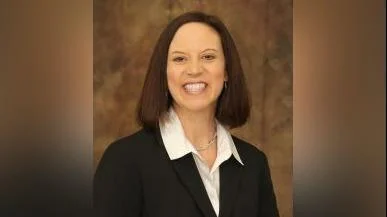SSM Health Good Samaritan Hospital - Mt. Vernon issued the following announcement on July 31.
Across the globe, people are grieving. Grief is a natural, normal and necessary journey when a loved one passes away. Grieving is hard work under normal circumstances, and this worldwide pandemic has made a normal bereavement very challenging. The COVID-19 pandemic has disrupted the way we are able to grieve, mourn and receive support.
Many have been unable to spend time with their loved ones in their final days and unable to speak those final words stating their “goodbyes.” Families have been unable to spend time with their loved one up to and after the moment he or she passes, making it difficult to acknowledge the reality of the death. Families are also unable to honor their loved one’s wishes in ceremonies or services they had planned and hoped for due to restrictions to slow the spread of the virus. In turn, families cannot gather to hug and support each other while remembering their loved one, which is an important part of the mourning process. Furthermore, the bereaved can then feel an increased feeling of isolation and a lack of social support due to stay-at-home orders, difficulty in traveling, and continued community restrictions.
Isolation is not conducive to healing. Therefore, it is important to remember that while we all need to socially distance for the health of ourselves and our communities, we should not emotionally distance ourselves. The bereaved should seek family and friends who are supportive and are good listeners. Encourage your grieving friends and relatives to make the first move to call, video chat or text those supportive individuals in their lives.
Mourning our loved ones is necessary even during a pandemic. Families can consider holding a virtual service honoring their loved one. While a virtual platform leaves much to be desired, it allows a time to remember the loved one. If technology is difficult, they could hold an intimate remembrance in their home with just a few key people in attendance. Then, once restrictions are lifted and they are comfortable gathering with family and friends, they can hold a larger remembrance or religious ceremony to honor their loved one. It is never too late.
If you are unable to be present in the days prior to the death or at time of death, you can write a “goodbye letter.” This letter can express not only what you wanted to tell your loved one at the time of death, but also include special memories, what your loved one taught you, or what you will always remember.
Balance your grief and mourning with a health activity like calling a family member or taking a walk. Give yourself permission to “take a break” from your grief and do something you enjoy without feeling guilty. Receiving proper rest and eating a balanced diet should also not be overlooked or understated.
We are all hard-wired for human interaction; receiving support while grieving is critical in finding hope again. All the barriers imposed by this pandemic can lead people to be at an increased risk of prolonged grief disorder, or complicated grief.
Complicated grief is characterized by an extended length of grief symptoms, the intensity of grief symptoms, or the inability to perform normal everyday activities or functions. Those experiencing complicated grief often feel lost and alone, and the grief feels chronic and debilitating. They can feel unbearable sadness and a painful yearning. For those dealing with mental illness or a history of mental illness, the circumstances surrounding the death of their loved one, or multiple losses, can leave these bereaved individuals especially at-risk for complicated grief during this pandemic.
When the bereaved experiences complicated grief disorder, their grief dominates their life and their future seems hopeless. The bereaved may replay scenarios over and over in their minds while second guessing decisions they made about their loved one’s care. This obsession leaves no room in the bereaved’s life for anything other than the memories of their loved one and reminders of the loss. If complicated grief is suspected, the bereaved should seek care from a doctor, a grief counselor, and/or a mental health expert.
Learn more about SSM Health’s experienced team of counselors, psychiatrists, nurses and specialized therapists who work to provide you support and expertise
Original source can be found here.

Source: SSM Health Good Samaritan Hospital - Mt. Vernon



 Alerts Sign-up
Alerts Sign-up